// rach // 23 // danish ~ french // personal blog: dunedjarin
Don't wanna be here? Send us removal request.
Text
in an interesting case of linguistic convergent evolution, the english words scale, scale, and scale are all false cognates of each other
107K notes
·
View notes
Text
i think university is about walking around campus with a tote bag (or backpack) and trying to look purposeful and busy. and whoever manages to look the most purposeful and busy wins
21K notes
·
View notes
Text
don’t like it when people take valid criticisms of anglo-centrism etc. as opportunities to shit on english as a language because 1. its actually pretty fucking cool and weird and interesting and 2. its still a language that a lot of people speak that has a lot of history and variation and intricacy
137 notes
·
View notes
Text
don’t like it when people take valid criticisms of anglo-centrism etc. as opportunities to shit on english as a language because 1. its actually pretty fucking cool and weird and interesting and 2. its still a language that a lot of people speak that has a lot of history and variation and intricacy
137 notes
·
View notes
Text
How to pronounce X
You can pronounce the letter X five different ways in French:
#1. [ks]
when it’s inside a word: Texte \tɛkst\
when it follows E and is followed by a consonant: Excellent \ɛk.sɛ.lɑ̃\
when a word ends in -ax, -ex, -inx, -ox, -ynx, and sometimes -ix or -yx: Thorax \tɔ.ʁaks\, Lynx \lɛ̃ks\
#2. [gz]
when it’s the first letter of a word: Xylophone \ɡzi.lɔ.fɔn\
when it follows E and is followed by either a vowel or H: Exactement \ɛɡ.zak.tə.mɑ̃\, Exhumer \ɛɡ.zy.me\
#3. [s]
in SIX (6) and DIX (10), when used without an object: J’en ai six \sis\
in DIX-SEPT (17) and numbers from 60 to 69: Soixante \swa.sɑ̃t\
in the name of certain cities: Bruxelles \bʁy.sɛl\, Auxerre \o.sɛʁ\
#4. [z]
in numbers derived from DEUX (2), SIX (6), DIX (10): Sixième \si.zjɛm\, Dix-huit \di.z‿ɥit\, Deuxième \dø.zjɛm\
#5. [/]
when a word ends in -eux: Heureux \œ.ʁø\, Ceux \sø\
when a plural word ends in -aux, -eaux, oux, aux: Chevaux \ʃə.vo\
when an invariant word ends in -x: Choix \ʃwa\, Voix \vwa\

360 notes
·
View notes
Text
How to Handle Having TOO MUCH To Do
So let’s say you’re in the same boat I am (this is a running theme, have you noticed?) and you’ve just got, like, SO MUCH STUFF that HAS to get done YESTERDAY or you will DIE (or fail/get fired/mope). Everything needs to be done yesterday, you’re sick, and for whatever reason you are focusing on the least important stuff first. What to do!
Take a deep breath, because this is a boot camp in prioritization.
Make a 3 by 4 grid. Make it pretty big. The line above your top row goes like this: Due YESTERDAY - due TOMORROW - due LATER. Along the side, write: Takes 5 min - Takes 30 min - Takes hours - Takes DAYS.
Divide ALL your tasks into one of these squares, based on how much work you still have to do. A thank you note for a present you received two weeks ago? That takes 5 minutes and was due YESTERDAY. Put it in that square. A five page paper that’s due tomorrow? That takes an hour/hours, place it appropriately. Tomorrow’s speech you just need to rehearse? Half an hour, due TOMORROW. Do the same for ALL of your tasks
Your priority goes like this:
5 minutes due YESTERDAY
5 minutes due TOMORROW
Half-hour due YESTERDAY
Half-hour due TOMORROW
Hours due YESTERDAY
Hours due TOMORROW
5 minutes due LATER
Half-hour due LATER
Hours due LATER
DAYS due YESTERDAY
DAYS due TOMORROW
DAYS due LATER
At this point you just go down the list in each section. If something feels especially urgent, for whatever reason - a certain professor is hounding you, you’re especially worried about that speech, whatever - you can bump that up to the top of the entire list. However, going through the list like this is what I find most efficient.
Some people do like to save the 5 minute tasks for kind of a break between longer-running tasks. If that’s what you want to try, go for it! You’re the one studying here.
So that’s how to prioritize. Now, how to actually do shit? That’s where the 20/10 method comes in. It’s simple: do stuff like a stuff-doing FIEND for 20 minutes, then take a ten minute break and do whatever you want. Repeat ad infinitum. It’s how I’ve gotten through my to do list, concussed and everything.
You’ve got this. Get a drink and start - we can do our stuff together!
100K notes
·
View notes
Text
im not normally the type to show off on purpose but when i get the chance to translate something that nobody else around understands i feel like im more powerful than god
2K notes
·
View notes
Text
English: The End ❤
Danish:......
English: What?
Danish:.....
English: Oh no
Danish:
Slut
370 notes
·
View notes
Photo

One of us. One of us. We accept them. One of us.
2K notes
·
View notes
Photo
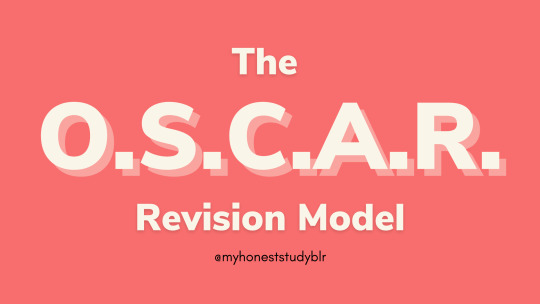
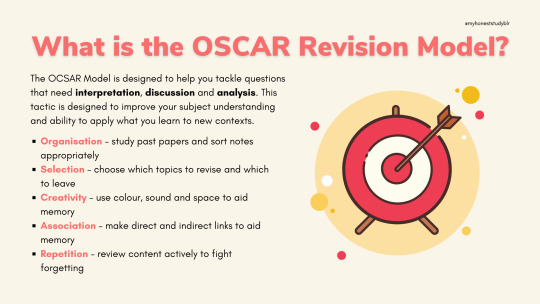

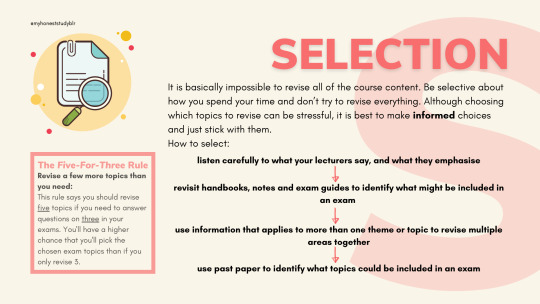
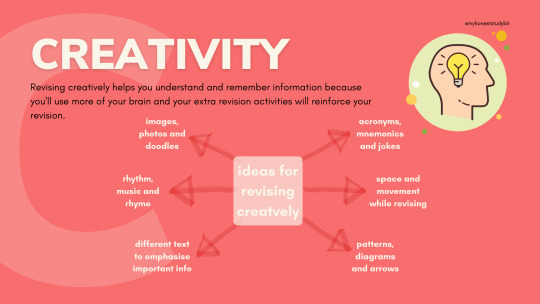
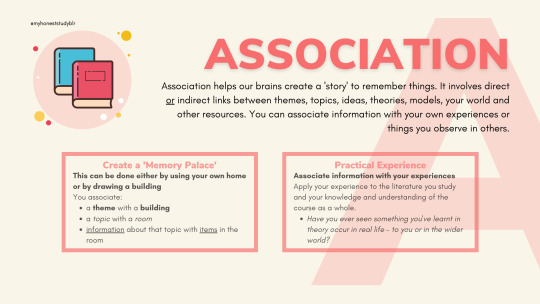
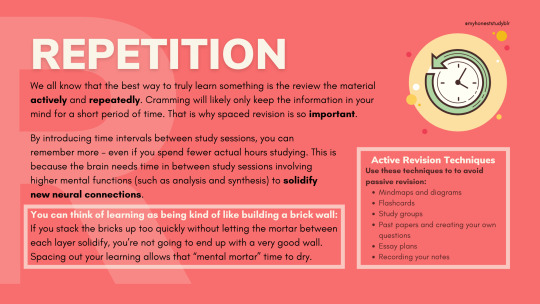
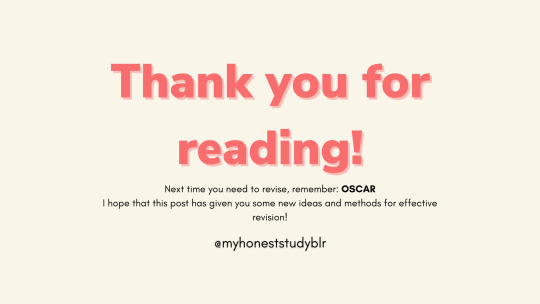
my masterpost | my studygram | ask me anything
[click images for high quality]
[transcript under the cut]
Other advice posts that may be of interest:
How To Study When You Really Don’t Want To
Active Revision Techniques
How to Revise BIG Subjects
Common Study Mistakes
Keep reading
2K notes
·
View notes
Text
A beginner's guide
Bonjour! Is there a list of things that a french beginner should learn, is there a specific order to learn topics in french? Also, love your blog, it helps me a lot.
*
Hello, thanks love you too! Here's roughly how to proceed:
#1. Genders.
Nouns, adjectives, determiners and past participles in French are either masculine or feminine. There is no neutral.
Known: LE/LA/L’ (+ vowel) + singular, LES + plural (The girl)
Unknown: UN/UNE + singular, DES + plural (A cat)
Uncountable: DU/DE LA + singular, DES + plural (Sugar)
How do I know what gender an item is?
Those that end with a consonant are likely masculine (Un éléphant), those that end with an -e likely feminine (Une girafe), especially if it follows a couple of the same consonant (Une tasse). A noun or adjective can be ‘gender-neutral’, or épicène (Juge, Drôle). There are obviously exceptions (Nation, Incendie).
What’s an uncountable item?
It’s a group of items that are either too small or too large to be counted: fruit, sugar, flour, people, etc (ex: Du sable, Des gens).
Let’s practice: Le facteur et la boulangère sont mariés. La ministre est sortie. Un chien aboie dehors. J’ai mangé du pain.
#2. Numbers.
To turn a singular into a plural, adding an -s is your most popular option. It can also be an -x (Bijou, Feu), nothing if the singular ends in -z, -s, -x (Nez); some words only exist as plurals (Ciseaux). There are a few irregulars (Oeil/yeux, Monsieur/messieurs, Madame/mesdames, Animal/animaux).
Let’s practice: J’ai deux petits frères qui sont nés (past participle) en 1998. J’ai un chat sur les genoux. Il y a des noix dans mes gâteaux. Mes yeux sont noirs.
#3. Verbs.
Verbs belong to one of three groups: -er except Aller (90%), -ir with a few exceptions, and the bin (auxiliaries Être and Avoir, Aller, -re, -oir, -ir exceptions). They can be modal (Should) or reflexive: preceded by an object pronoun (Je m’appelle).
The most useful verbs are:
Être: to be, avoir: to have, faire: to do/make, dire: to say, pouvoir: can, aller: to go, voir: to see, savoir: to know, vouloir: want, venir: to come, falloir: to have to, devoir: must, croire: to believe, trouver: to find, donner: to give, prendre: to take, mettre: to put down/place, laisser: to let, to need: avoir besoin de (...)

#4. Tenses.
The most useful tenses are:
Indicative present (J'aime le fromage - I like cheese)
Imperfect (J'aimais le fromage - I liked cheese)
Perfect (J'ai aimé le fromage - I have liked cheese)
Future (J'aimerai le fromage - I will like cheese)
Present conditional (J'aimerais le fromage - I would like cheese)
Present subjunctive (Je veux que tu prennes le fromage - I want you to take the cheese) triggered by certain verbs + que.
N.B.: There are irregular past participles (Être: été, Avoir: eu, Voir: vu, etc.).
Let’s practice: Je ne sais pas. Il dessinait bien. Nous sommes venus. Ils te verront quand ils reviendront. Vous seriez partis tôt.
#5. Function words.
Personal pronouns: Tu manges du pain
Demonstrative pronouns: Celui de ma soeur est mieux
Possessive determiners: C'est ton chien
Contracted words: Elle est au parc
Coordinating conjunctions: J'y vais mais j'ai peur
Subordinating conjunctions: Je demanderai quand il rentrera
Linkers: On se voit plus tard
Let’s practice: Je crois qu’elle sera à l’heure mais je peux me tromper. Pourquoi est-ce que tu pars? Nous reviendrons plus tard, quand il fera plus beau. Vous ne devez pas être en retard sans raison. C’est là, celle à droite.
#6. Basic knowledge.
Accents
Adverbs
Calendar
Colours
Conversation
En + Y
Family
Food
Negations
Numbers
Prepositions
Questions
Relative pronouns
Terminations
Time
Tu or Vous
*
As you're mastering those, start practising.
Listen to music, podcasts, books while looking at the transcription - don't translate, get used to the pronunciation and the word chewing. Record yourself reading.
Then, start reading. I recommend starting with children's literature, especially books you already know in English. Things like Le petit prince or Perrault's fairytales should be accessible.
Use Reverso and Deepl as if you were paid to.
Study the pronunciation posts. The devil is in the details.
Learn vocabulary every week. Avoid translating English word by word, it's often a fool's bet; make a simpler sentence instead.
Explore my grammar tag once in a while.

2K notes
·
View notes
Text
hey i made a tiny survey for my presentation about social media in the UK. it's super informal and won't be used in a study, it's mainly for fun. if you wanna give it a go click here! responses from British people are encouraged but anyone can do it :D
135 notes
·
View notes
Text
the study method that has changed the way i study
and made me so much more effective is called “active recall”.
the concept of active recall is based on the fact that we retain information much faster through testing ourselves than through any other study method!
each time you ask yourself a question and try to answer it, neuron pathways are enforced in your brain, and every time you try to retrieve information, the connection to this information grows faster and stronger.
but what exactly does this mean? this means that the best way of studying is actually not through input, but through output.
if, for example, you’ve read through your lecture notes and understood them, the most effective way to remember them for a long time isn’t to read it again, to paraphrase it or to highlight the most important parts. instead, the best method to use is to test yourself by formulating questions and trying your best to answer those without looking at your materials.
if you can’t answer a question, look it up, either in the lecture notes, in the lecture itself, in a textbook or on the internet.
this way, you are forcing your brain to engage actively with the material as much as possible, which is why it’s been shown by several studies to be the most effective method for studying.
once i started using this method, i wasn’t just remembering a lot more and saving myself so much time otherwise spent with highlighting or making notes - i was actually a lot more confident to speak up in class when asked something and performed so much better in oral examinations!! by actively recalling the material, you’re basically giving your brain the best workout ever, while skipping time-consuming methods that lead to no results.
so read through your latest lecture slides, open your notebook, and think of some questions!
ps: you can also color-code your questions to denote how well you can already answer them!!
for more tips like these, visit my Instagram @softlyshade where I post them daily!!
3K notes
·
View notes
Text
if anyone needs me i'll be frothing at the mouth thinking about the origin of language and interspecies communication. happy wednesday.
95K notes
·
View notes



